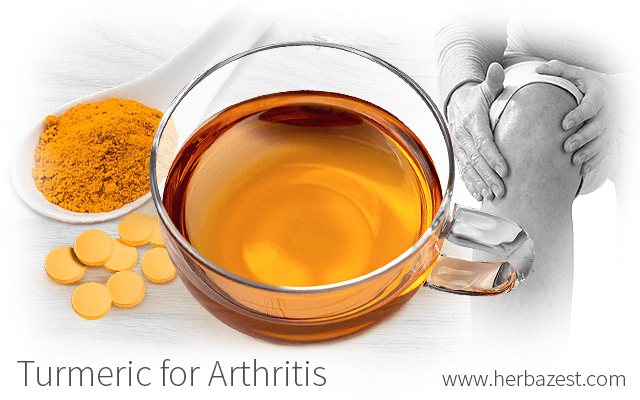In recent years, researchers have taken a renewed interest in turmeric and corroborated ancient claims about its anti-inflammatory abilities, making room for even greater potential and further understanding of the herb. This is good news for people with arthritis as turmeric may offer a helping hand managing their symptoms.
What Is Arthritis?
Arthritis is a generic, all-encompassing term that describes illnesses affecting the joints, muscles, or surrounding tissue. Among the most common are rheumatoid arthritis and osteoarthritis.
Arthritic diseases generally involve pain, stiffness, swelling, malformation, and reduced movement in the affected areas. Researchers have found arthritis to be the result of a number of both lifestyle and physiological factors.
Risk Factors and Triggers for Arthritis
The natural process of aging, family history, genetics as well as lifestyle are factors that may increase the risk of developing arthritis. Gender is another important variable to consider as most forms of arthritis are more common in women. Obesity, lack of physical activity, and bad posture are also factors that greatly increase the likelihood of developing arthritis.
Arthritis can also occur as a consequence of apparently unrelated causes, such as accidents, joint injuries, infections, staying still for too long, extreme weather conditions (e.g., cold, rain, snow), high impact exercise or physical activity (e.g., occupational hazard), and stress.
How to Use Turmeric for Arthritis
While arthritis can be a serious, painful illness, turmeric supplements and preparations may help keep the tenderness and inflammation at bay. Consider the following herbal remedies:
- Turmeric tablets. The best way of consuming turmeric for arthritis is to take it in the form of tablets. The recommended dosage is about 500 mg, three times daily.1
- Turmeric tea. In order to soothe away pain and inflammation from arthritis, mix ground turmeric and honey into a thick paste before pouring hot water over it for a warm tea concoction.
- Culinary turmeric preparations. Up to three grams daily of raw or powdered turmeric root is recommended for arthritis. Enjoy turmeric in a number of healthy meal recipes as part of a well-balanced diet.
BECAUSE TURMERIC'S CURCUMIN IS FAT-SOLUBLE, GREATER ABSORPTION CAN BE ACHIEVED BY COMBINING IT WITH HEALTHY FATS OR OILS.
Turmeric's Analgesic Action
Numerous scientific investigations have sought to understand the breadth of turmeric's efficacy, and, in recent years, clinical studies have substantiated the success of prior research, suggesting the effectiveness of turmeric for arthritis and rheumatic illnesses treatment.
A 2009 randomized, controlled study followed the progress of 107 patients with primary knee osteoarthritis.2 Those treated with curcumin extract exhibited improvements in pain and overall knee function associated with taking the stairs, comparable to the effects of ibuprofen - except with a slightly lower incidence of adverse reactions.
THE ANALGESIC ACTION OF TURMERIC FOR ARTHRITIS HAS BEEN COMPARED TO IBUPROFEN, AND IT HAS SHOWN FEWER SIDE EFFECTS.
Additionally, a study published in 2012 explored the effects of curcumin on patients suffering from rheumatoid arthritis. 45 patients were split into three separate groups: 15 were treated with curcumin, 15 with diclofenac sodium, and 15 with a combination of the two.3 Those who received the curcumin treatment alone showed the highest improvement rates in pain, tenderness, and joint swelling. The conclusions of the study suggest the superiority of curcumin as an anti-inflammatory agent, thereby strengthening the relationship between turmeric and rheumatoid arthritis.
A 2020 study further corroborated the efficacy of turmeric for relieving joint pain. In a randomized placebo trial4, 72 older adults with knee pain due to osteoarthritis were divided into two groups. The intervention group that received a curcumin ointment instead of a placebo, twice daily for six weeks, experienced noticeable improvements in terms of pain reduction.
Other Herbs for Arthritis
Camu camu, chilli pepper, alfalfa, and cayenne possess healing properties that help fight pain and inflammation caused by arthritis. For best results, pair turmeric with herbs and foods rich in fatty acids for better absorption of turmeric's anti-arthritic compounds.
With nearly 6,000 years of history, turmeric has made its mark as a versatile and useful herb for healthcare. With many clinical studies underway, modern science has already begun to support the safety and efficacy of turmeric for arthritis, among various other illnesses.
Sources
- Centers for Disease Control and Prevention, Arthritis
- National Library of Medicine, Arthritis
- University of Maryland Medical Center, Turmeric
Footnotes:
- BCM Complementary Medicine and Therapies. (2006). Dose escalation of a curcuminoid formulation. Retrieved September 27, 2021 from https://www.ncbi.nlm.nih.gov/pmc/articles/PMC1434783/
- Journal of Alternative and Complementary Medicine. (2009). Efficacy and safety of Curcuma domestica extracts in patients with knee osteoarthritis. Retrieved September 23, 2021, from: https://pubmed.ncbi.nlm.nih.gov/19678780/
- Phytotherapy Research. (2012). A randomized, pilot study to assess the efficacy and safety of curcumin in patients with active rheumatoid arthritis. Retrieved September 23, 2021, from: https://pubmed.ncbi.nlm.nih.gov/22407780/
- Inflammopharmacology. (2013). Safety and efficacy of Curcuma longa extract in the treatment of painful knee osteoarthritis: a randomized placebo-controlled trial. Retrieved October 21, 2020 from https://pubmed.ncbi.nlm.nih.gov/23242572/




